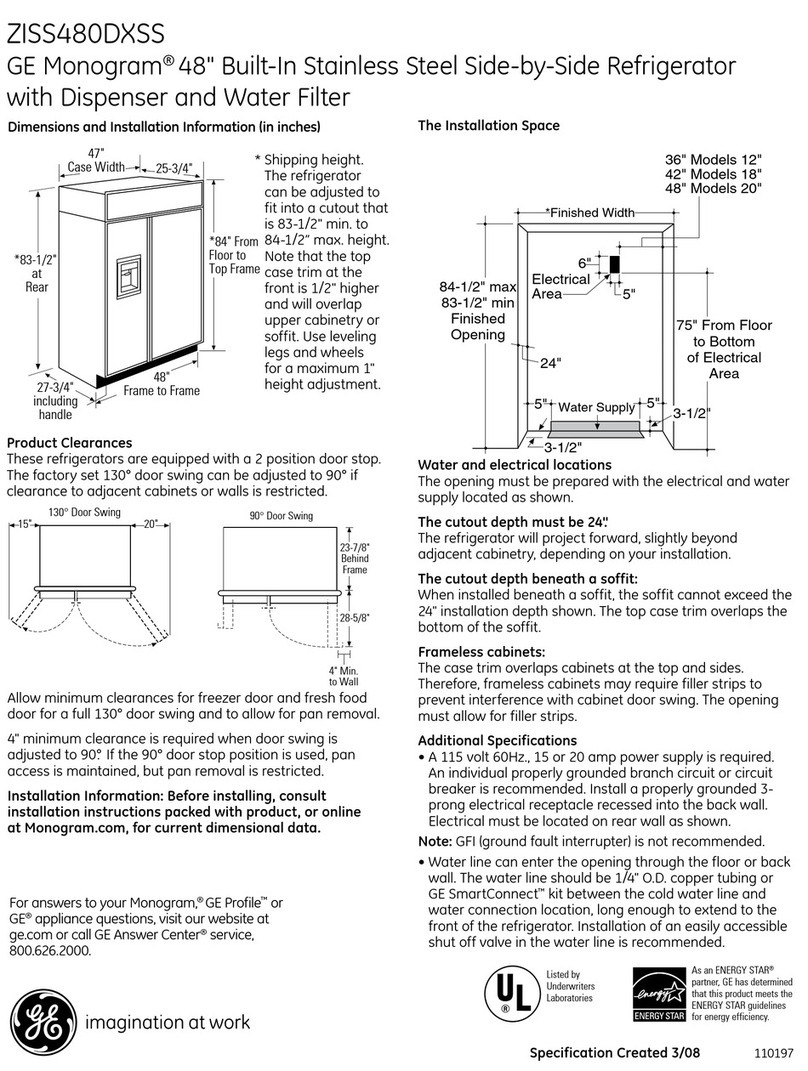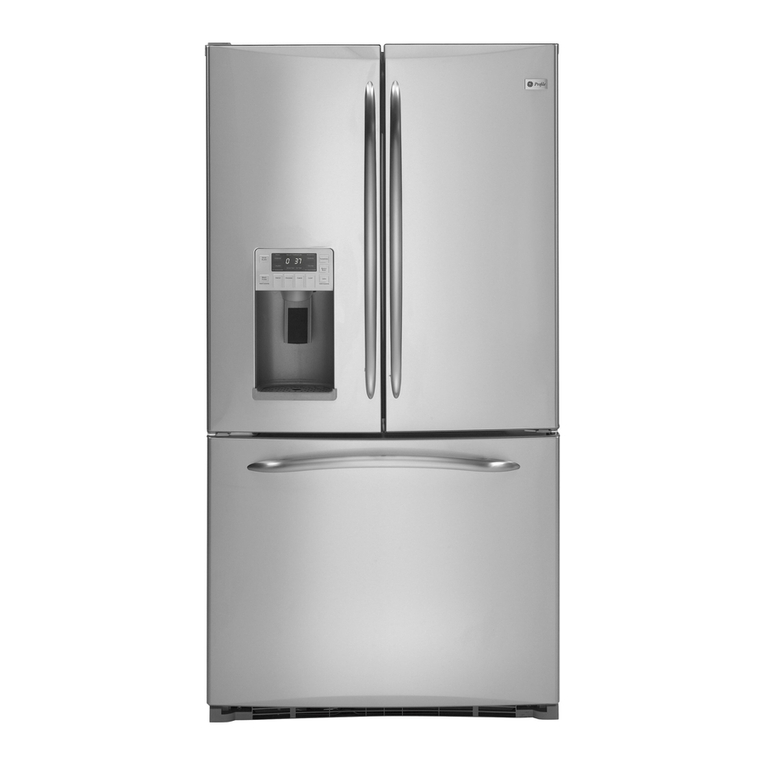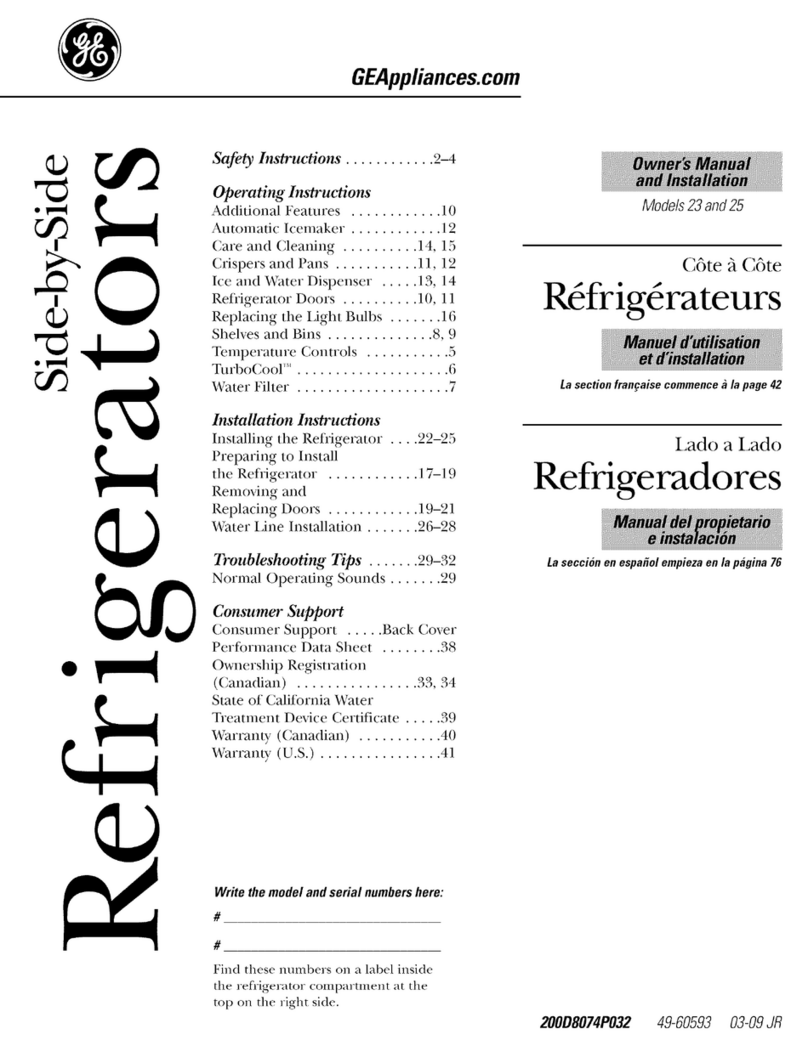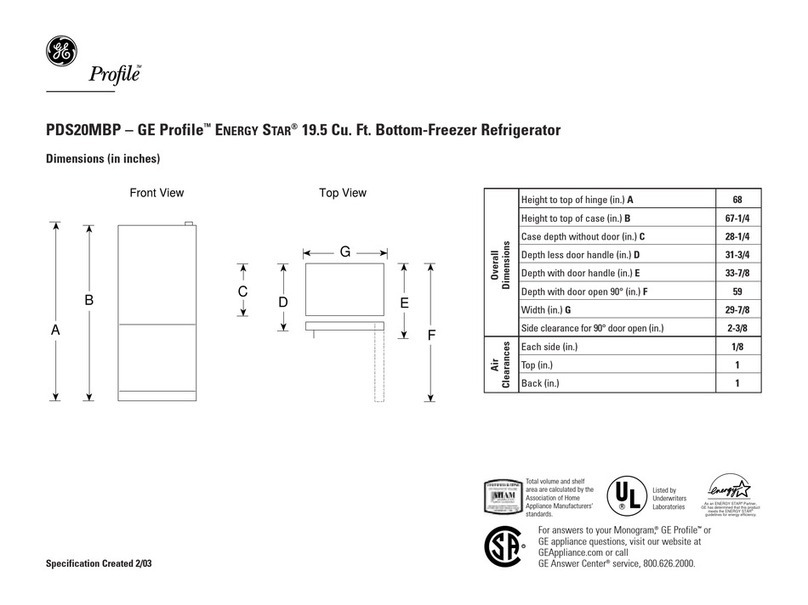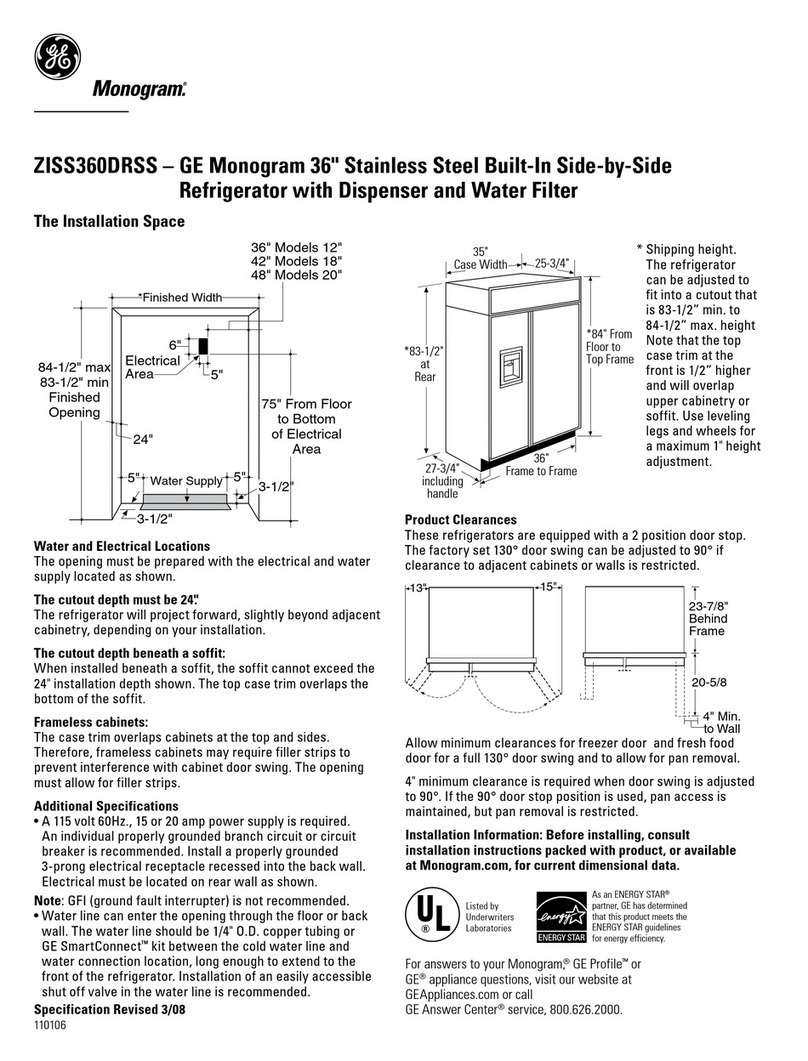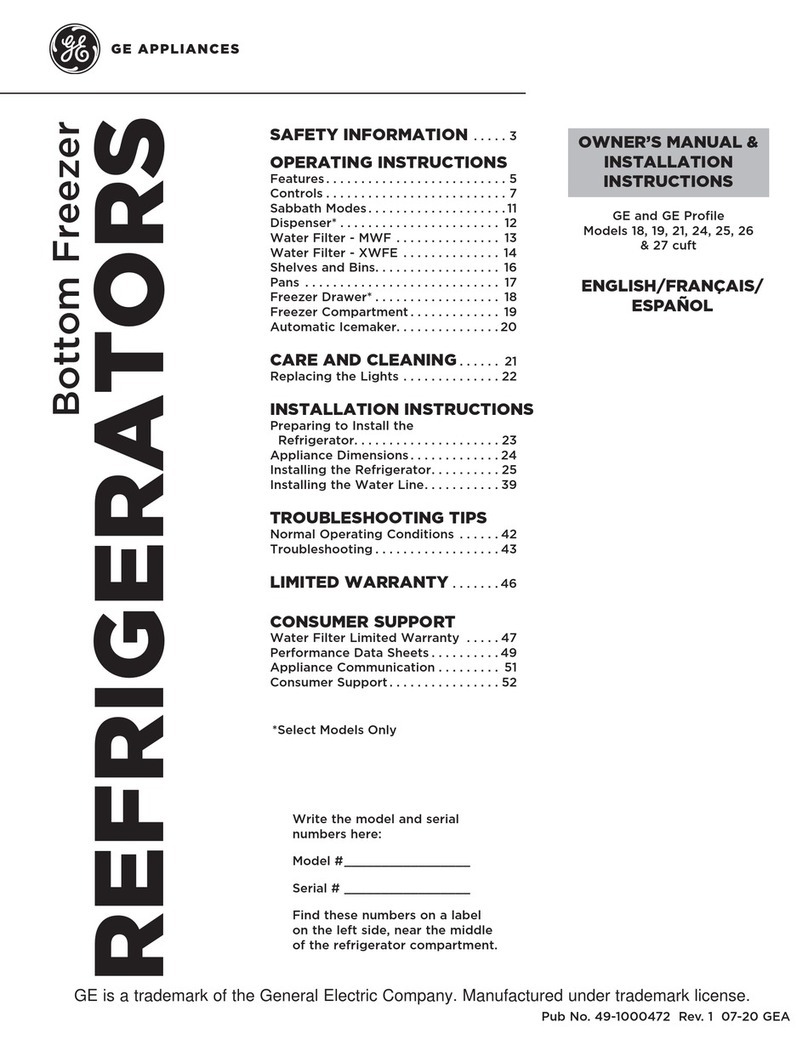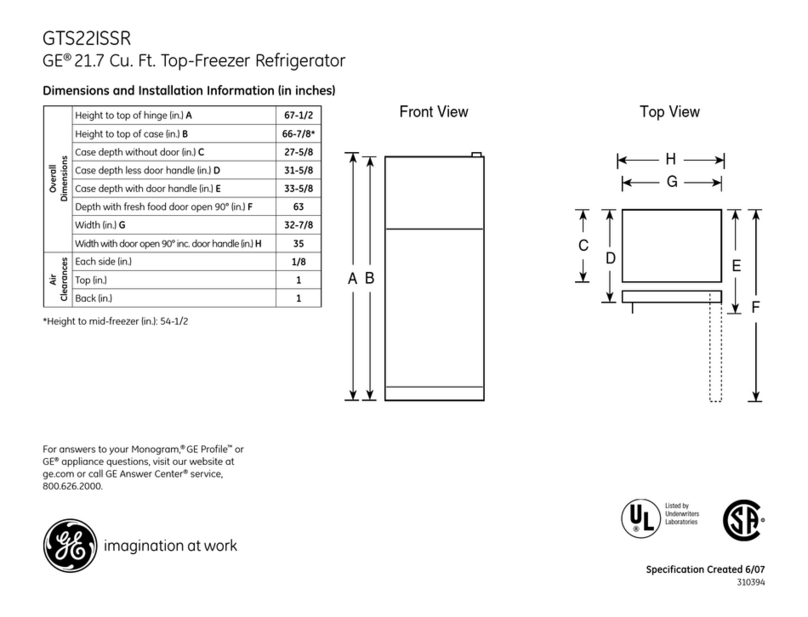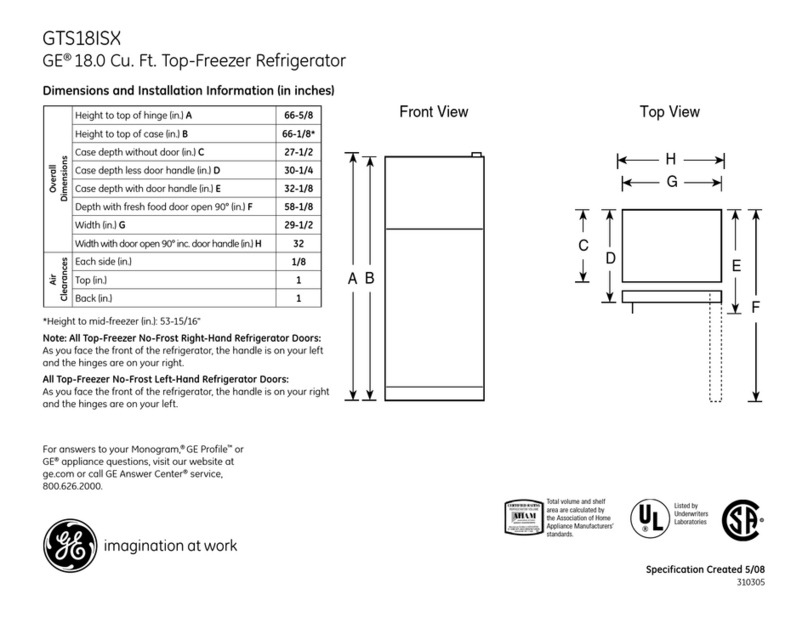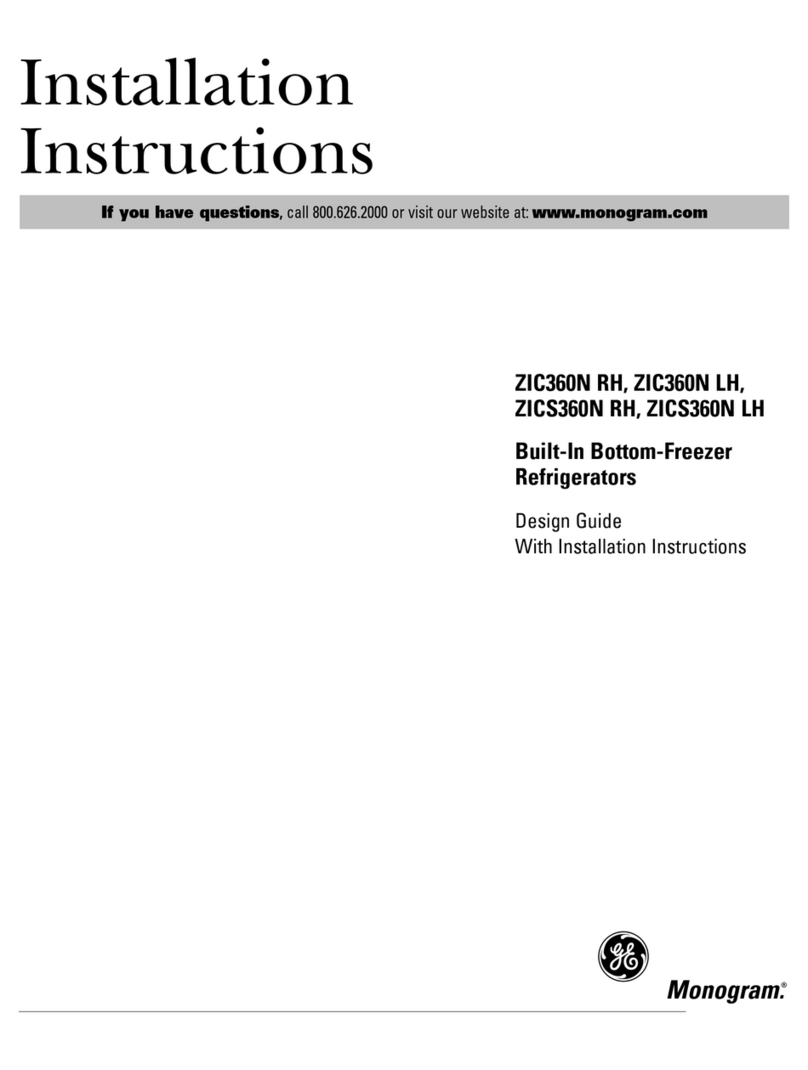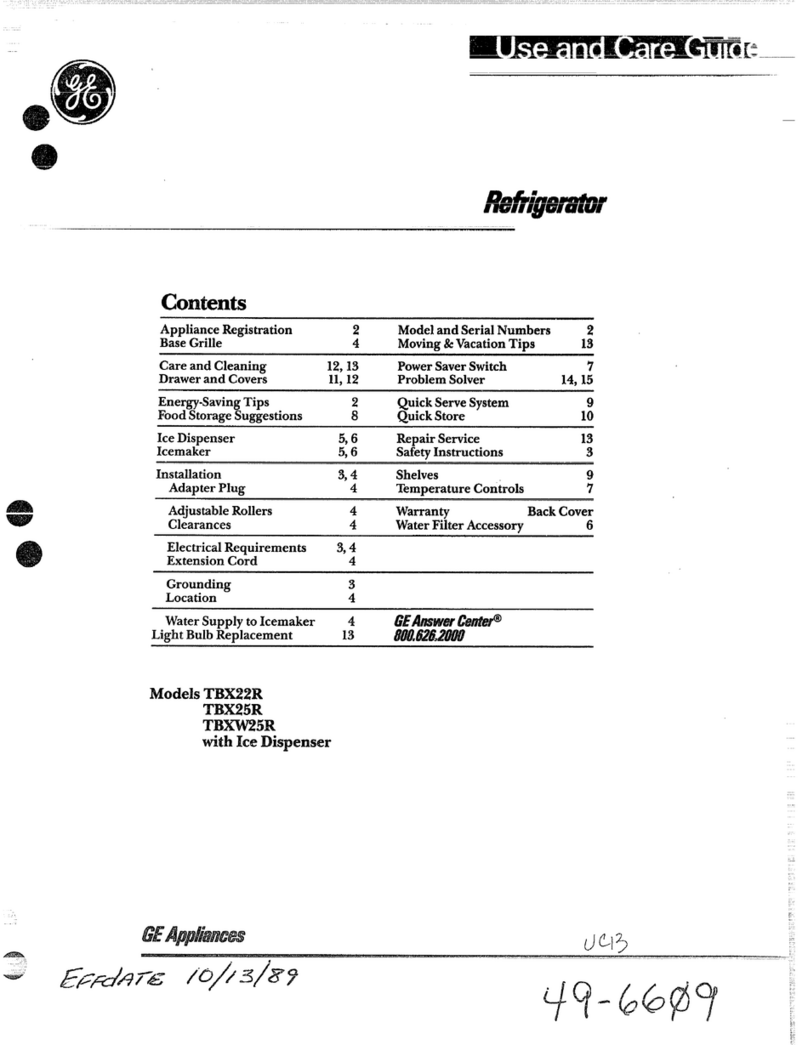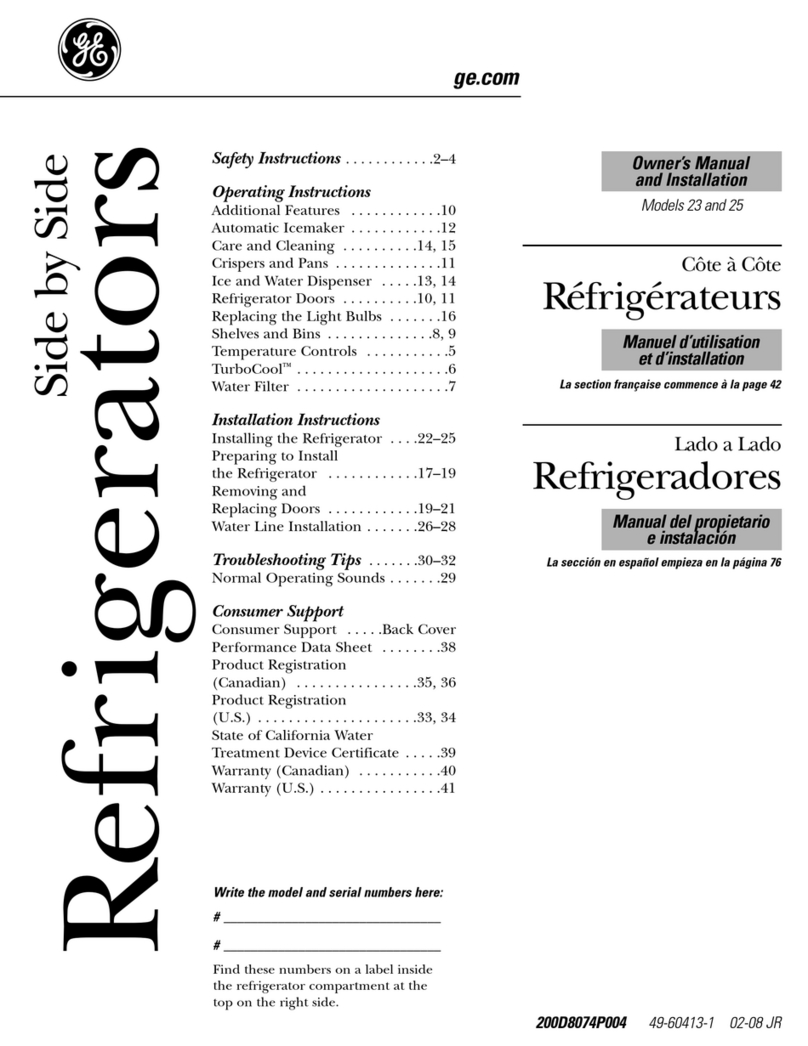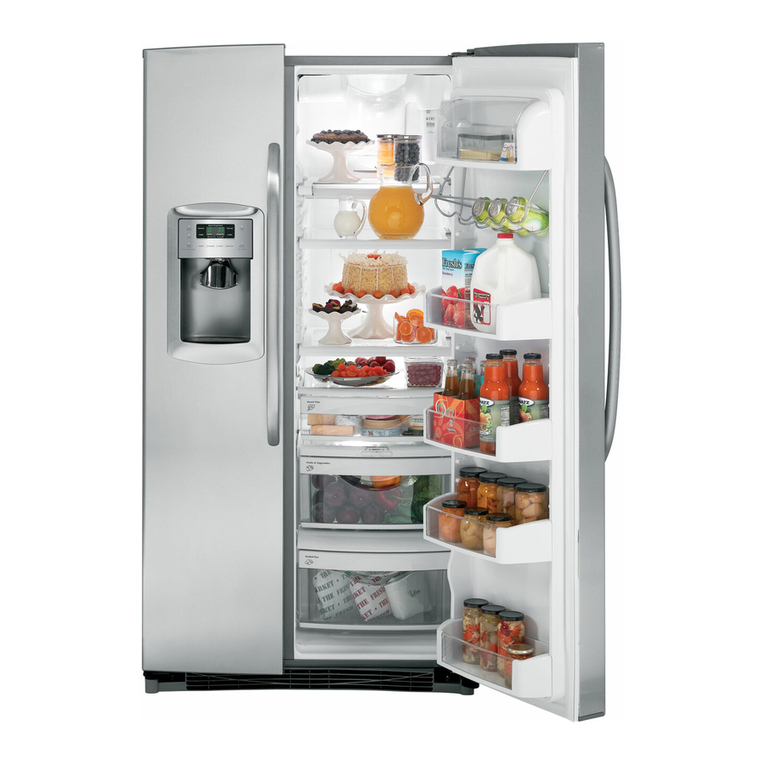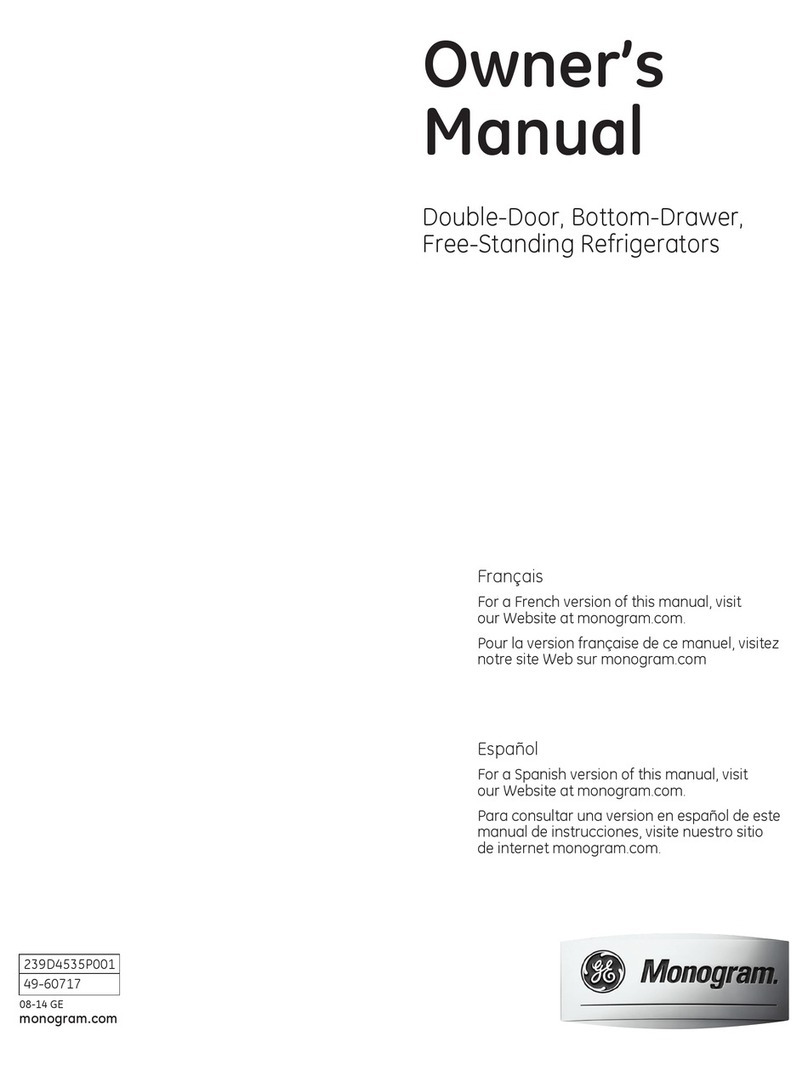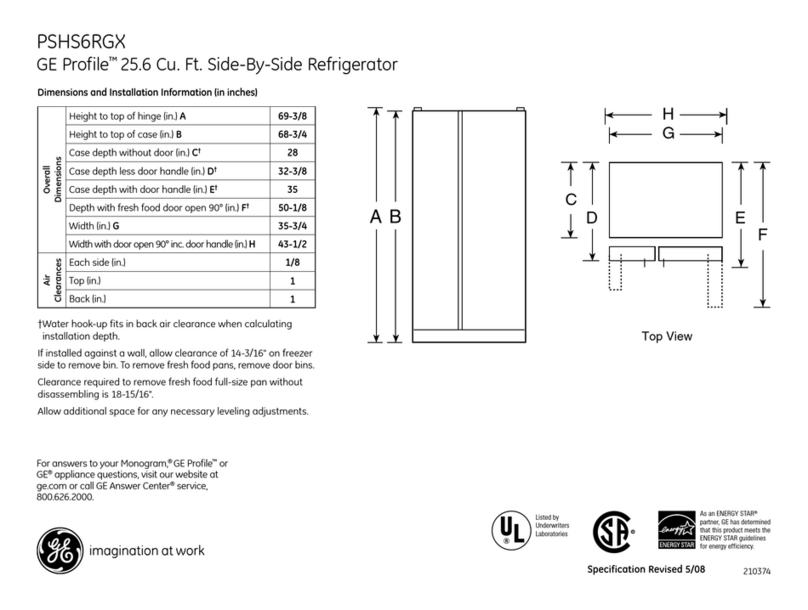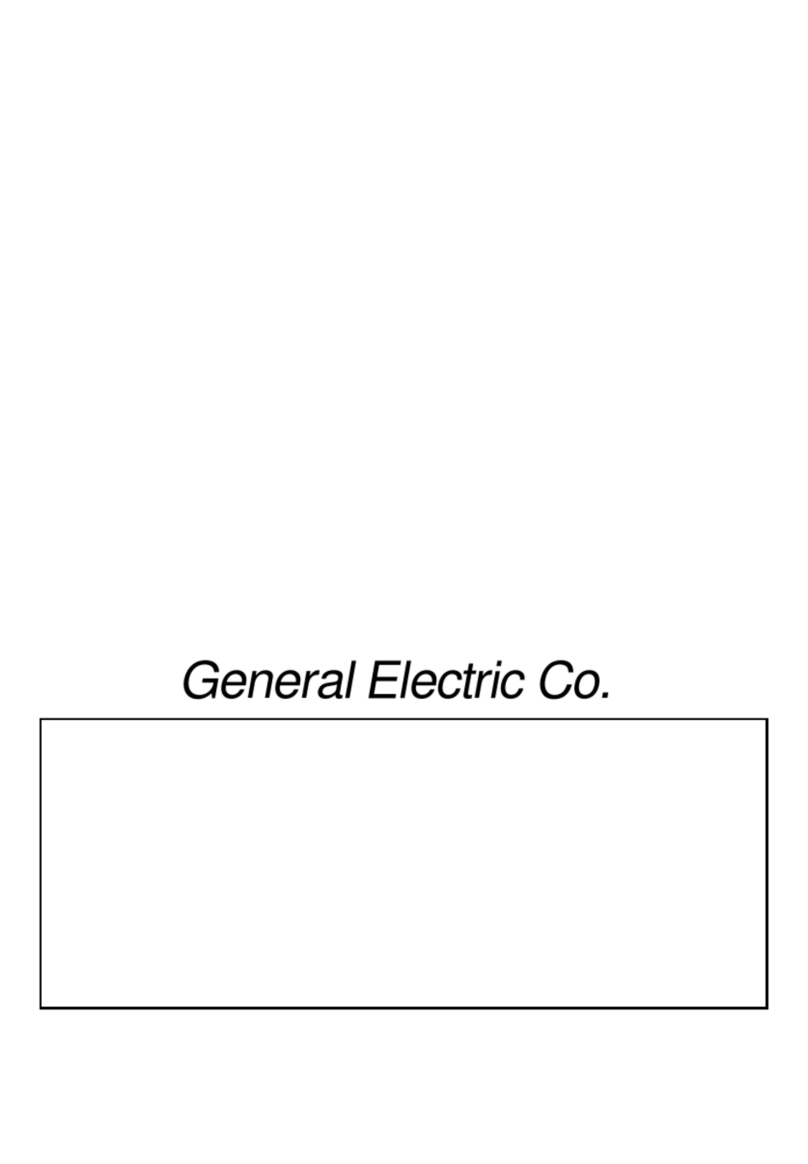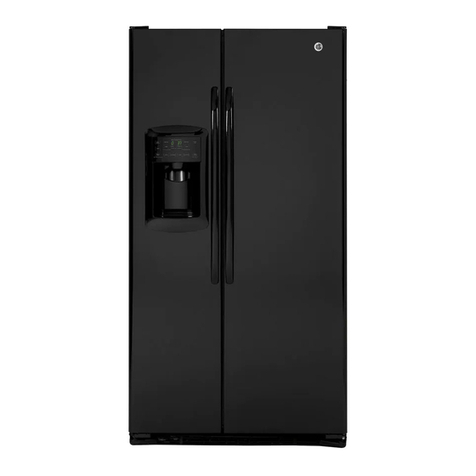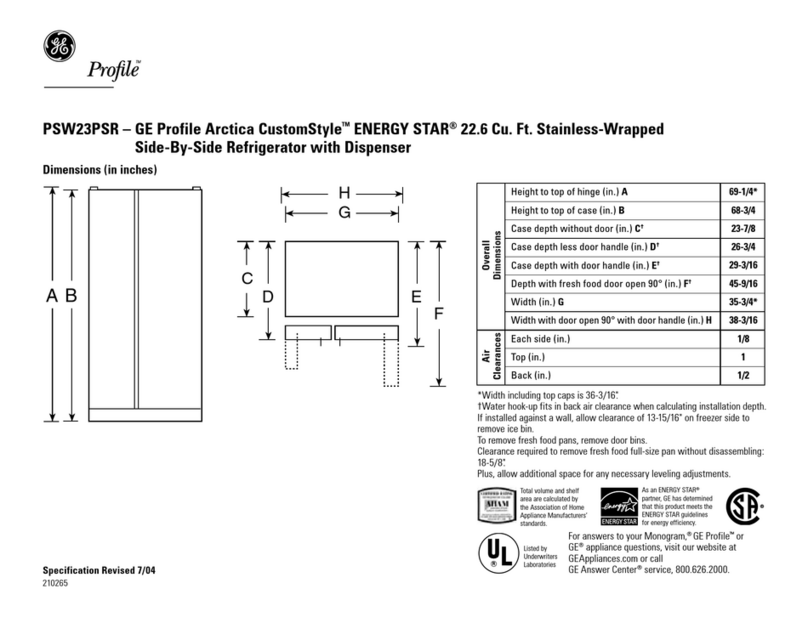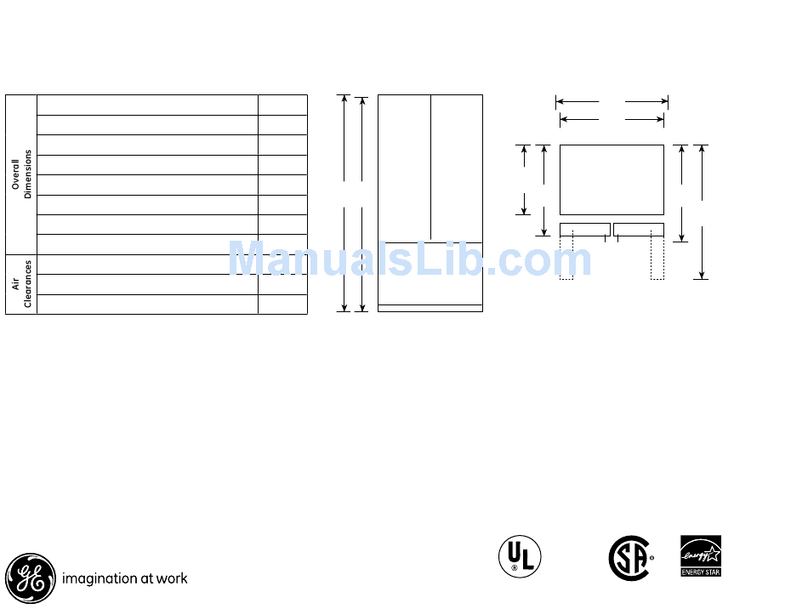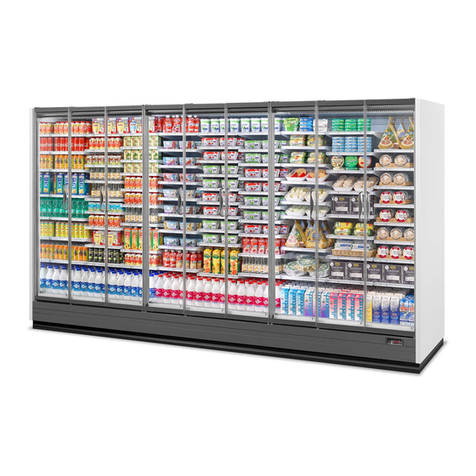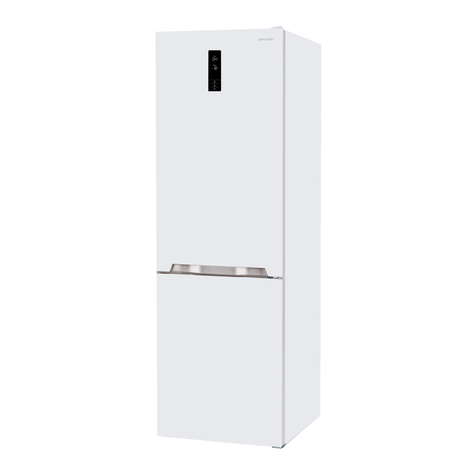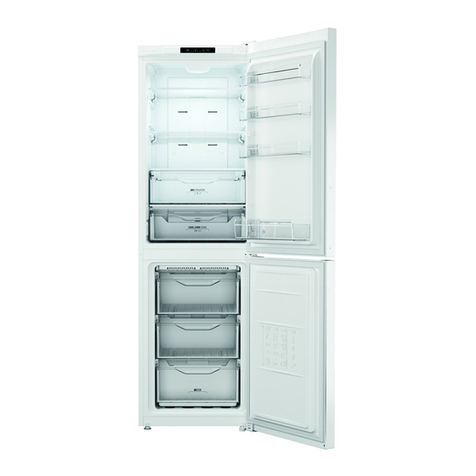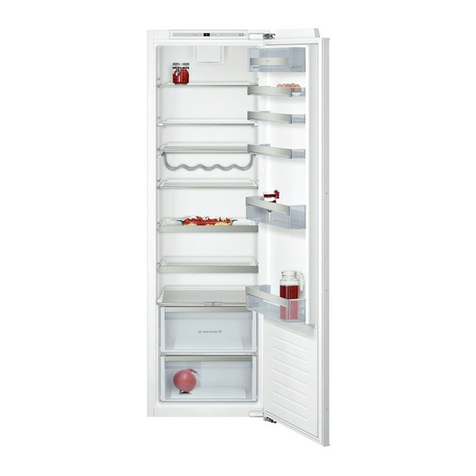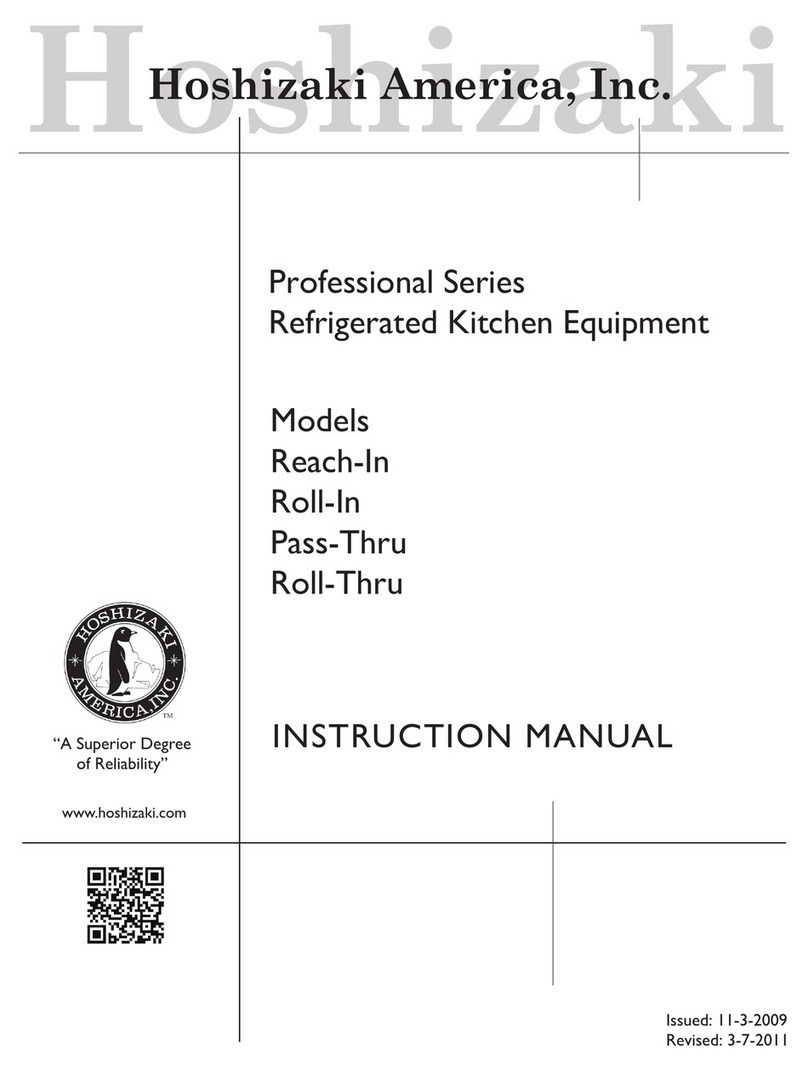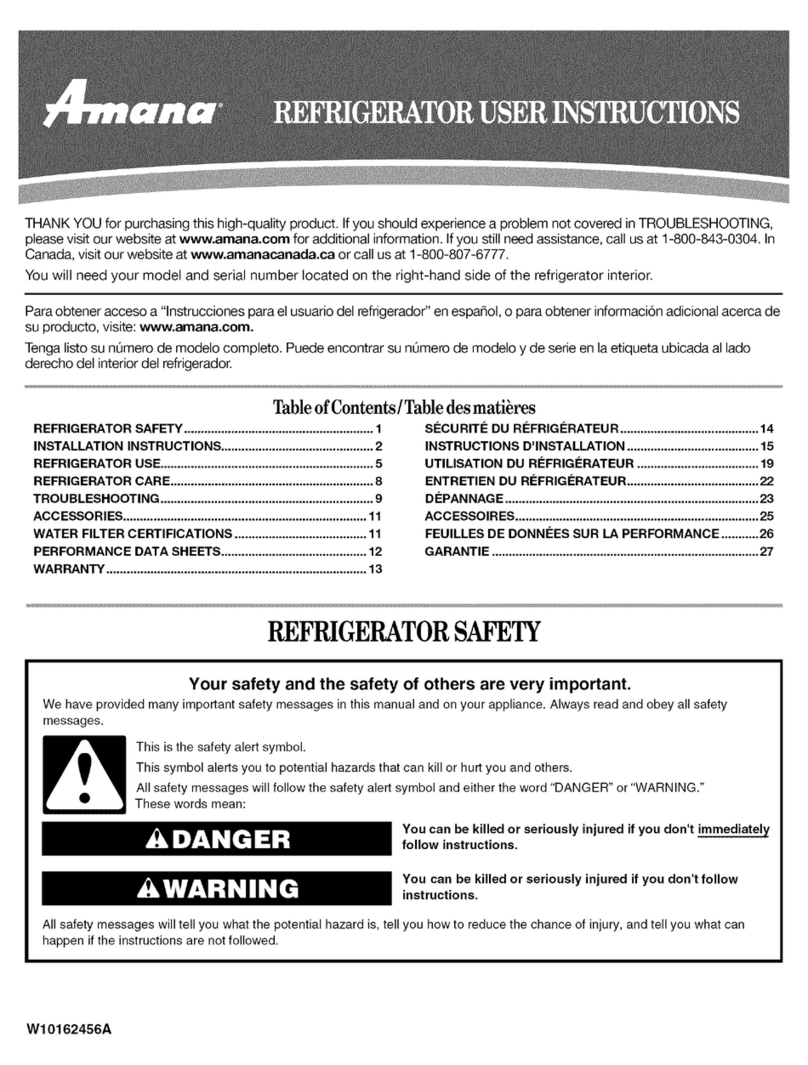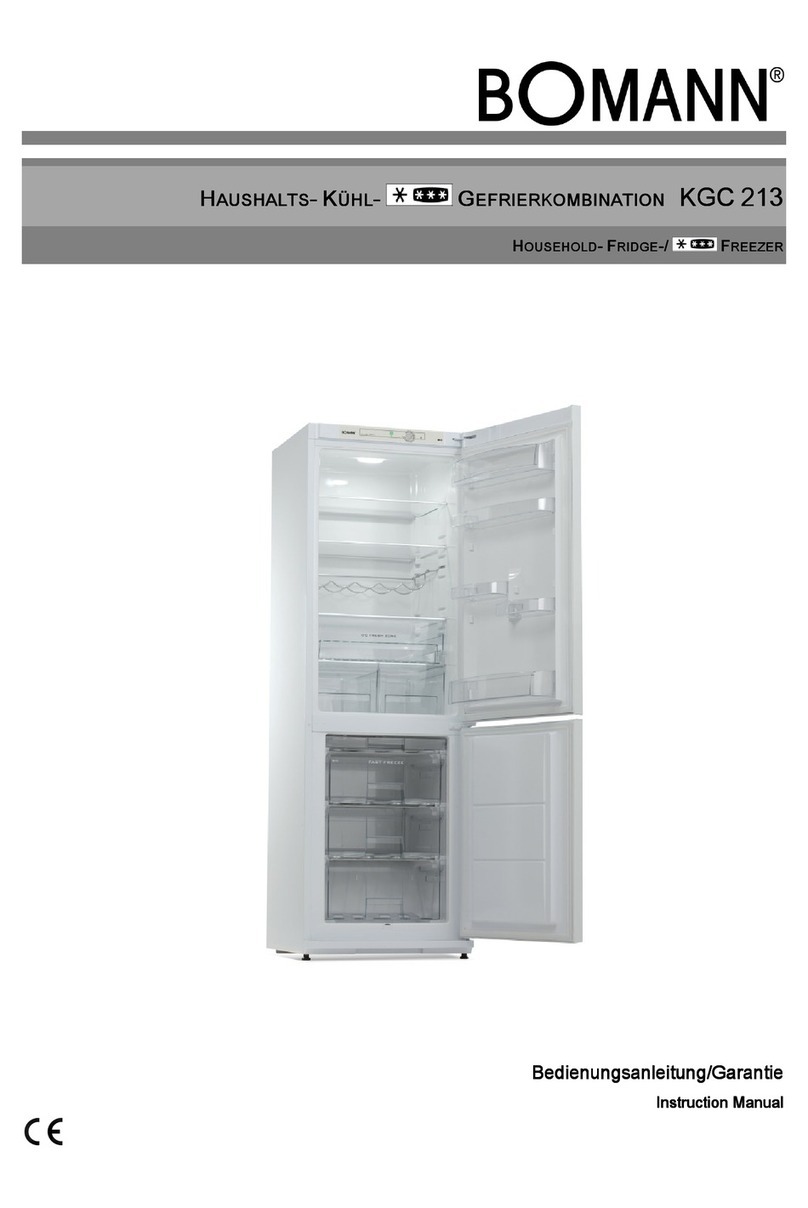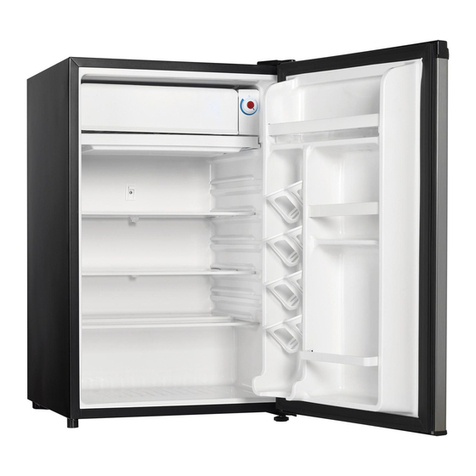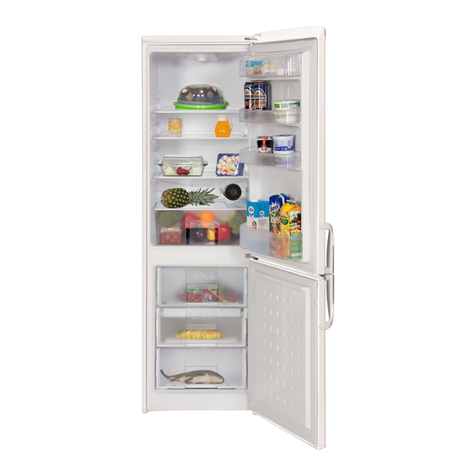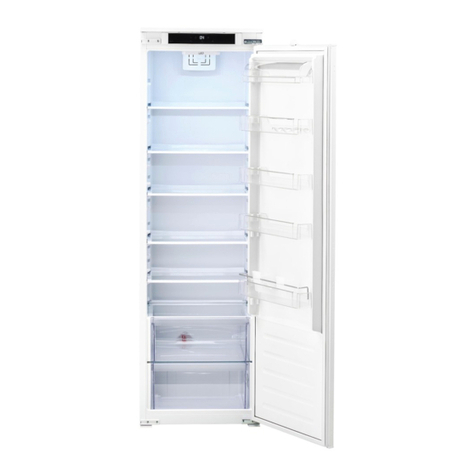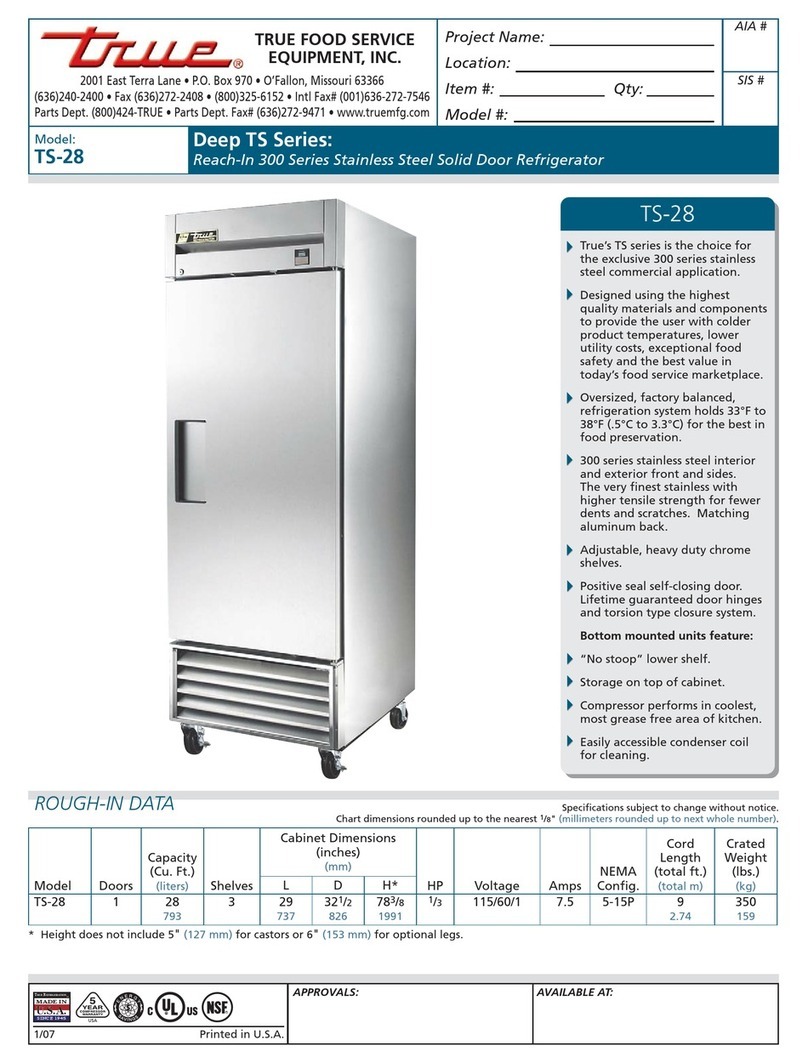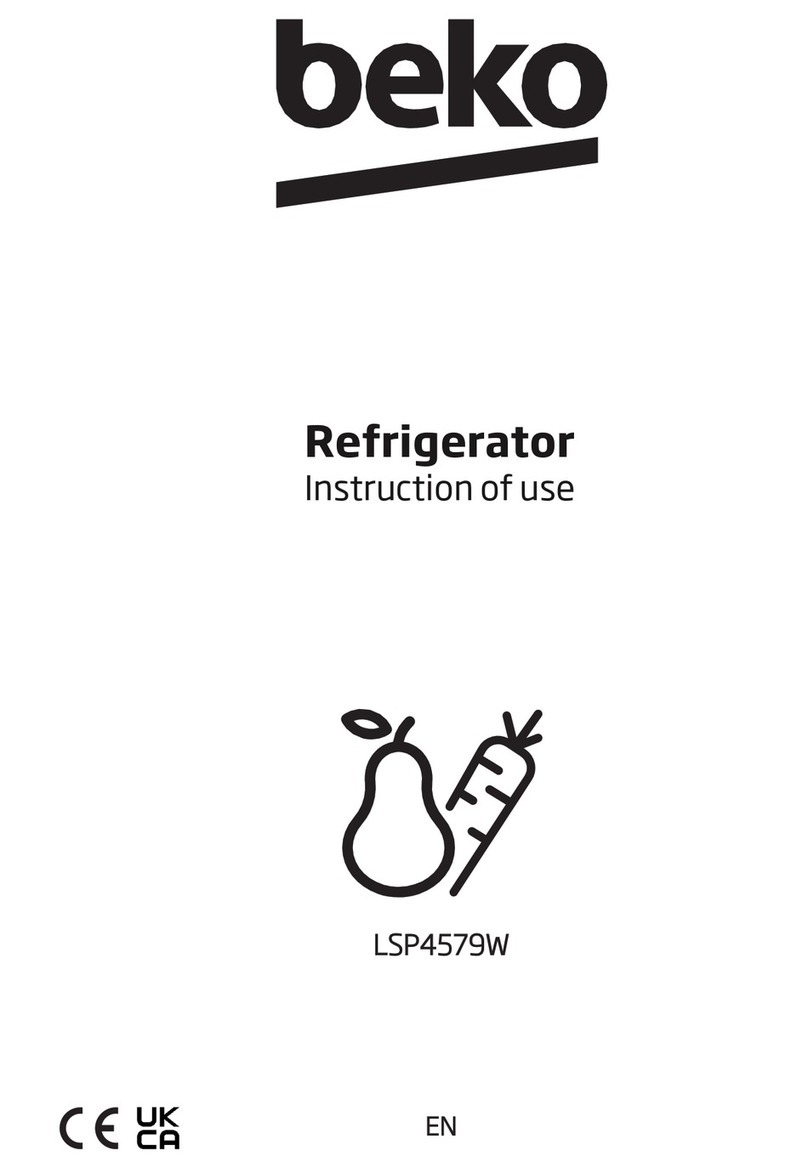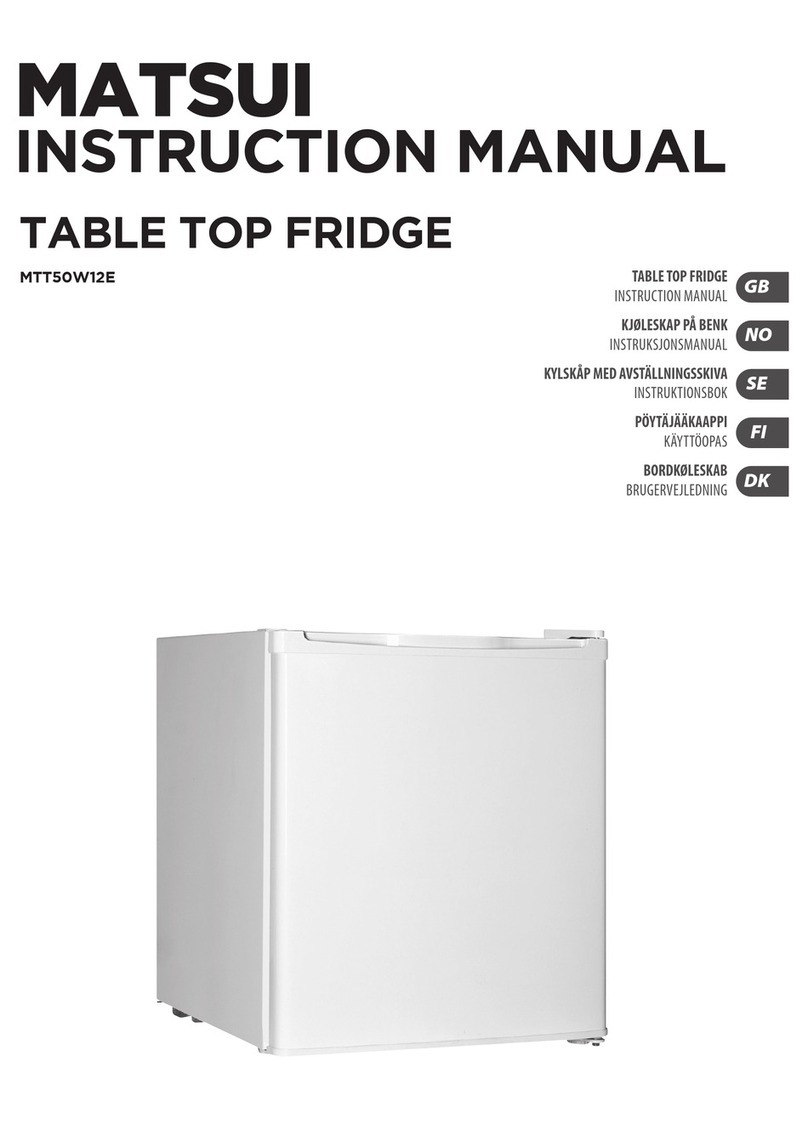IMPORTANT SAFETY INFORMATION.
READ ALL INSTRUCTIONS BEFORE USING.
WARNING!
Usethisappliance onlyfor itsintendedpurposeasdescribedin this Owner'sManual.
SAFETYPRECAUTIONS
When using electrical appliances, basic safety precautions should be followed, including the following:
:This refrigerator must be properly installed
and located in accordance with the Installation
Instructions before itis used.
:Donot allow children to climb, stand or hang on the
shelvesin the refrigerator.They could damage the
refrigerator and seriously injurethemselves.
Donot touch the cold surfaces in the freezer
compartment when hands are damp or wet.
Skinmay stick to these extremely cold surfaces.
: Donot store or usegasoline or other flammable
vapors and liquids inthe vicinity of this or any other
appliance.
: Keepfingers out of the "pinch point" areas;
clearances between the doors and between the
doors and cabinet are necessarily small.Becareful
closing doors when children are inthe area.
: Inrefrigerators with automatic icemakers,avoid
contact with the moving parts ofthe ejector
mechanism, or with the heating element that
releasesthe cubes.Donot placefingers or hands
on the automatic icemaking mechanism while
the refrigerator is plugged in.
Unplugthe refrigerator beforecleaning and making
repairs.
NOTE:Westrongly recommendthat any servicing
beperformed bya qualified individual.
: Setting either or both controlsto 0 (off) does not
remove power to the light circuit.
: Donot refreezefrozen foods which have
thawed completely.
ADANGER! RISK OF CHILD ENTRAPMENT
PROPERDISPOSAL OF THEREFRIGERATOR
Childentrapment and suffocation are not problems of
the past. Junked or abandoned refrigerators are still
dangerous...evenif they will sit for "justa few days."
Ifyou are getting rid of your old refrigerator,please
follow the instructions below to help prevent
accidents.
Before You Throw Away Your Old
Refrigerator or Freezer:
Takeoff the doors.
Leavethe shelvesin place sothat children may not
easily climb inside.
Refrigerants
All refrigeration products contain refrigerants,
which under federal law must be removed prior
to product disposal. If you are getting rid of an
old refrigeration product, check with the company
handling the disposal about what to do.
USEOFEXTENSION CORDS
Because of potential safety hazards under certain conditions, we strongly recommend against
the use of an extension cord.
However,if you must usean extension cord, it isabsolutely necessary that it be a UL-listed(inthe United
States)or a CSAcertified (inCanada),:3-wiregrounding type appliance extension cord having a grounding type
plug and outlet and that the electrical rating of the cord be 15 amperes (minimum) and 120 volts.
